Why PBS still matters
There's a lot to lose when we stop caring for ones who care about kids
Childhood might not last long, but what finds us there can last a lifetime.
A little while ago, I met LeVar Burton.
Yes, that LeVar Burton. The man who didn’t just promote reading, but modeled wonder. The iconic host of Reading Rainbow, that groundbreaking show which ran for 26 years on PBS, won over 200 awards (including at least two dozen Emmys) and helped generations of children fall in love with books.
It was backstage at an event. Someone introduced us. We talked about kids and books and Fred Rogers and Star Trek. (Basically all my favorite things.)
This was such a blur. I was supposed to speak soon and needed to focus on my notes, but … this was … LeVar.
LeVar. The man who read to me after school, who made quiet time feel like an adventure. The man with the calm voice and magic eyes, who looked at children through the camera like he could actually see them, like he saw me, the red-haired boy on the floor with peanut butter on his chin and Velcro shoes, imagination running ahead of his body.
Standing next to him, I didn’t just feel awe. Not nostalgia. Something quieter, like recognition. Like I was standing next to an old friend or family member. Like someone I’d known my whole life.
Because I had.
He was part of the fabric of my childhood.
That’s the thing, isn’t it? That’s the sacred secret of the work any of us do for children. If it’s made with love and care, it doesn’t just entertain. It threads itself into their imagination. It stays. Stitched tight. Held close. It becomes part of the fabric that holds them together when life gets frayed.
And one day, in a quiet green room, messy classroom, or a moment they didn’t see coming, it resurfaces. Not as a quote or a memorable scene, but as a quiet thread still stitched into the quilt of who they’ve grown to be.
Like many my age, I was raised by puppets. Not exclusively, of course. There were wonderful parents, teachers, and neighbors. But the puppets, well, they did a lot of work too.
Big Bird was one of my earliest friends. Gentle and giant, curious and childlike.
Oscar the Grouch let me know that bad moods don’t make you a bad person.
Snuffleupagus taught me that just because something is invisible to others doesn’t mean it itsn’t true.
And years later, strangely and wonderfully, I got to write for a few of them: Grover and Bert.
In 2014, the team from Sesame Street reached out to help us celebrate Socktober. (Socktober is a global program I’d launched a few years earlier to rally people around collecting essential items for neighbors in need) It was surreal. Suddenly, I was writing words for Muppets who’d helped shape the kind of grownup I hoped to become.
It felt like a dream. But also? It was one of the best educations I could’ve ever received as a young writer.
Every word was reviewed.
Every beat mattered.
The performer carefully considered what Grover would and wouldn’t say.
The education team thoughtfully ensured every piece of language hit developmental milestones.
Nothing was accidental, nothing sloppy. I learned the depth it takes to reach the simplicity of the kind of work they do. A depth built from decades of research, intention, and love.
Deep and simple. That kind of approach lives at the heart of some of the best work. And no one embodied it more fully than Mister Rogers.
Bold and gentle.
Patient and profound.
His neighborhood shaped my own.
Fred Rogers's work is woven into the fabric of who I am and what I do and always will be. He taught me when I was two and is still teaching me now.
Fred wasn’t just making a show. He was building a neighborhood. A quiet, patient, thoughtful neighborhood where kids were allowed to be kids. Where they weren’t hurried or hyped or sold something every five minutes. Where they were simply seen.
And here’s what I want to say clearly, urgently, and with every ounce of calm conviction I can muster:
This kind of work still matters.
Public broadcasting isn’t frozen in time. It continues to grow and help others grow. It’s still blooming. Still rooted in care. Still reaching for children with open arms and open minds.
I’ve recently gotten to know the team behind City Island. They are the real deal. These artists care deeply. They create wildly. They believe kids deserve the absolute best and it shows in every quirky, ridiculously charming frame. In this show, everything from bridges to parking meters has a story to tell. It’s imaginative, instructive, civic, and brilliant community-building in disguise.
There’s Carl the Collector, a beautiful series from the radiant brain of Zachariah OHora. The show is filled with neurodiverse characters voiced by neurodiverse actors, written with care, and constructed not as a lesson but as a life.
It’s not a “special episode” sort of approach. It’s every episode. And it’s quietly revolutionary. (Plus I really really love the music and all of Zachariah’s work.)
Alma’s Way, created by the legendary Sonia Manzano (Maria from Sesame Street), is a joyful, celebration of Afro-Latino culture, teaching kids to pause, reflect, and think for themselves with kindness and clarity.
Then there’s Daniel Tiger, the animated heir to Fred Rogers’ legacy.
A recent study by UCLA’s Center for Scholars and Storytellers found that teenagers who watched Daniel Tiger’s Neighborhood as preschoolers didn’t just remember the songs; they remembered the skills. Nearly 75% of them recalled learning how to name their feelings, understand others, solve problems, and maintain friendships. More than half said the show’s lessons on managing emotions stayed with them the most.
Most remarkable of all to me was discovering that 21% of them still use calming techniques like deep breathing because Daniel Tiger taught them how.
These weren’t just catchy songs or sweet stories.
They were scaffolding for emotional health.
So, yes.
Childhood may be short. But what finds us there can last forever.
These voices that guided me … puppets, tigers, Fred, LeVar… didn’t just fill time. They helped shape who I became. They taught me to look closely, speak kindly, breathe deeply, and keep wondering.
And now, like so many others, I try to pass it on.
PBS isn’t nostalgia. It’s nourishment. And it deserves to not just be preserved, but strengthened.
When we invest in the imaginative, emotional, and intellectual well-being of children, we’re not just creating good television. We’re weaving a better world. Childhood might not last long, but what finds us there can last a lifetime.
A recent executive order is calling for the elimination of federal funding for public media. This move would be a serious blow to the millions of families who rely on PBS KIDS for quality, educational, commercial-free content.
If this matters to you (and if you’ve made it this far, I bet it does), here is something you can do:
Tell your congressional leaders to support public media funding. You can do so immediately by going here.
And if you want a reminder of what public media looks like at its most powerful, listen to Fred Rogers testifying before Congress. I’ve paired it with audio from my friend Sleeping at Last.
That quiet courage changed things. It still can.



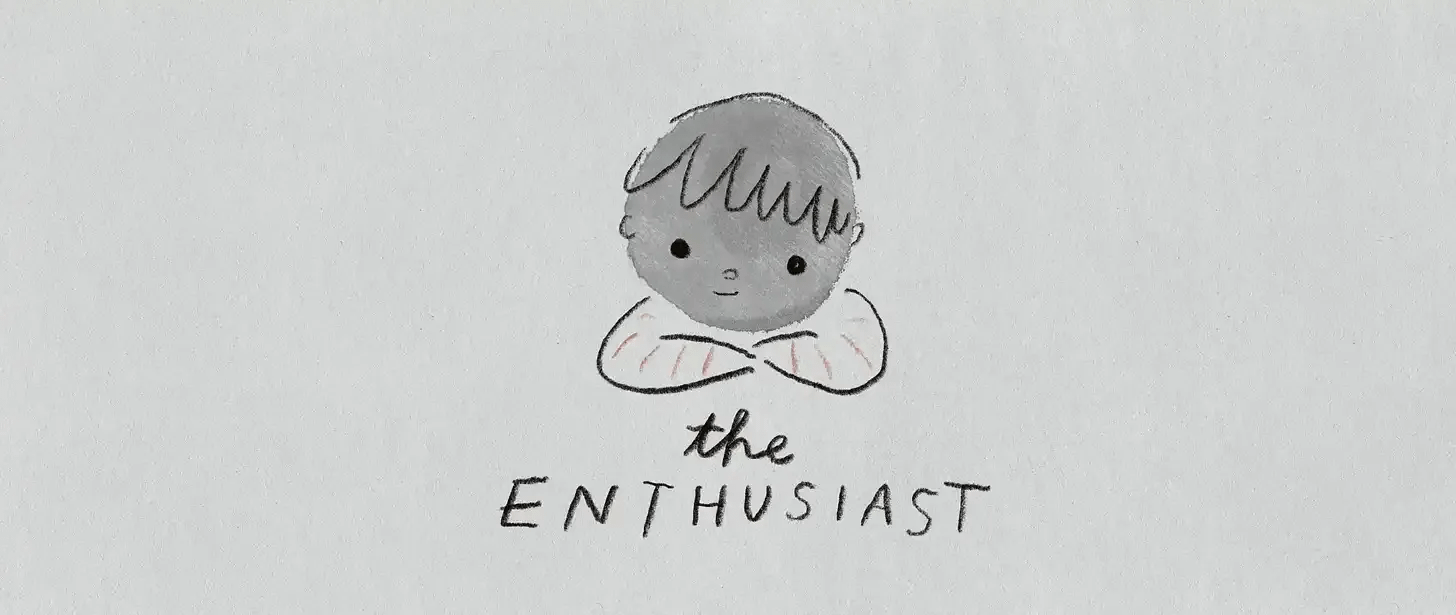
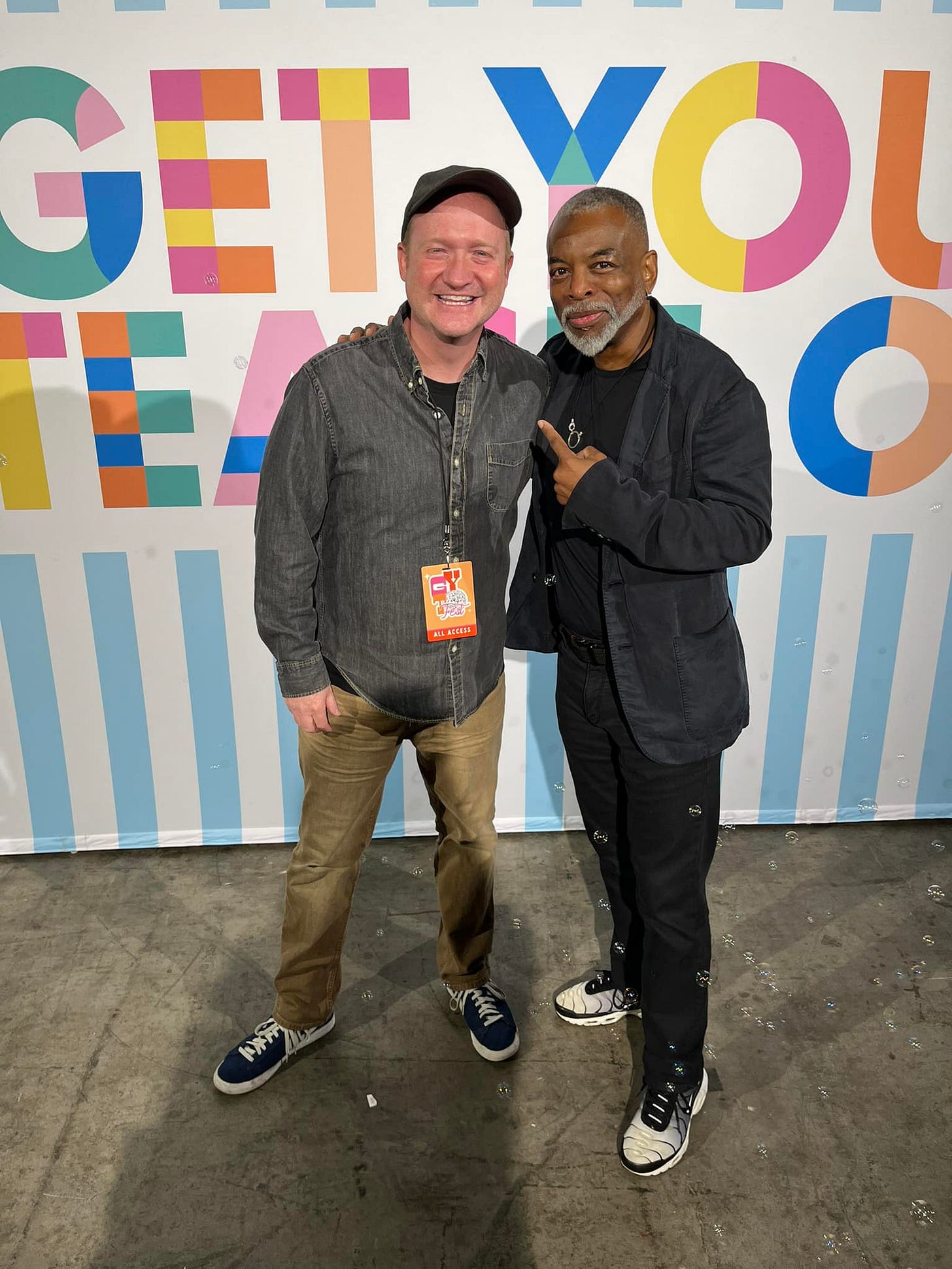


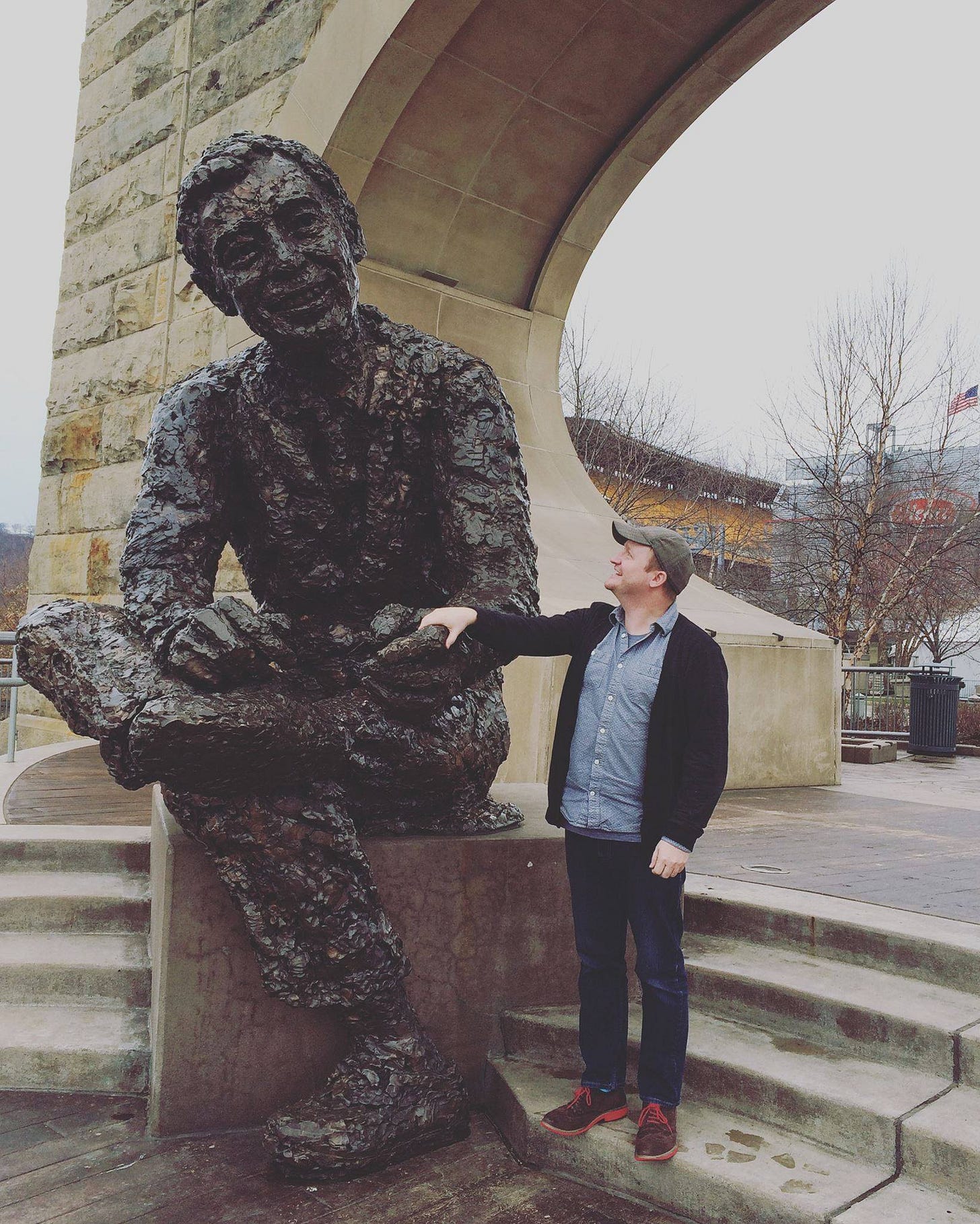
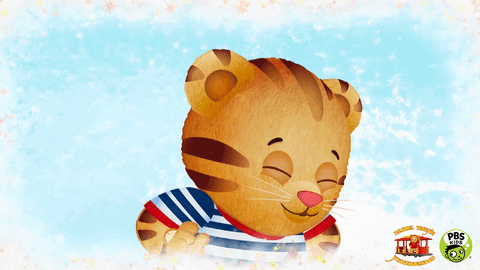
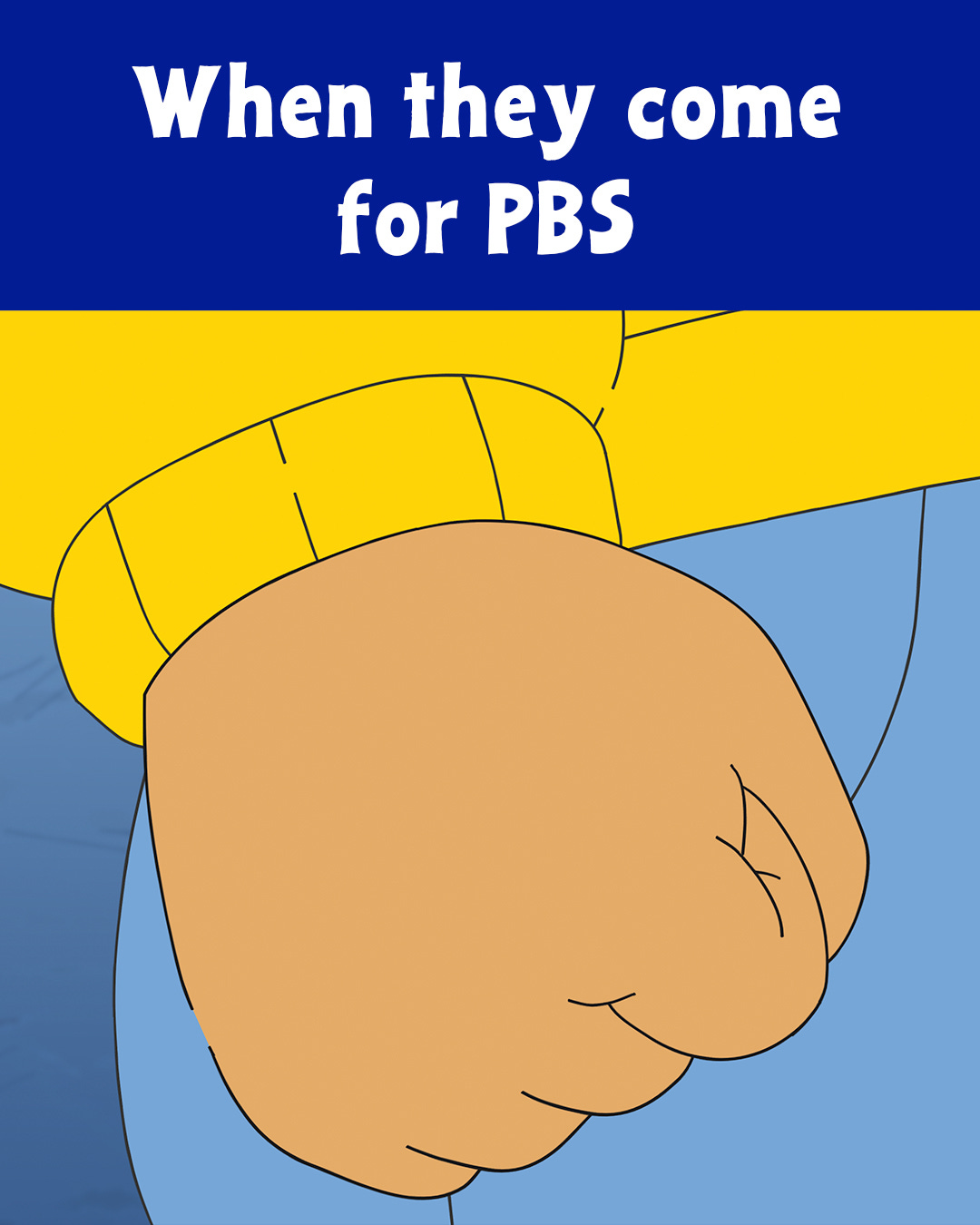
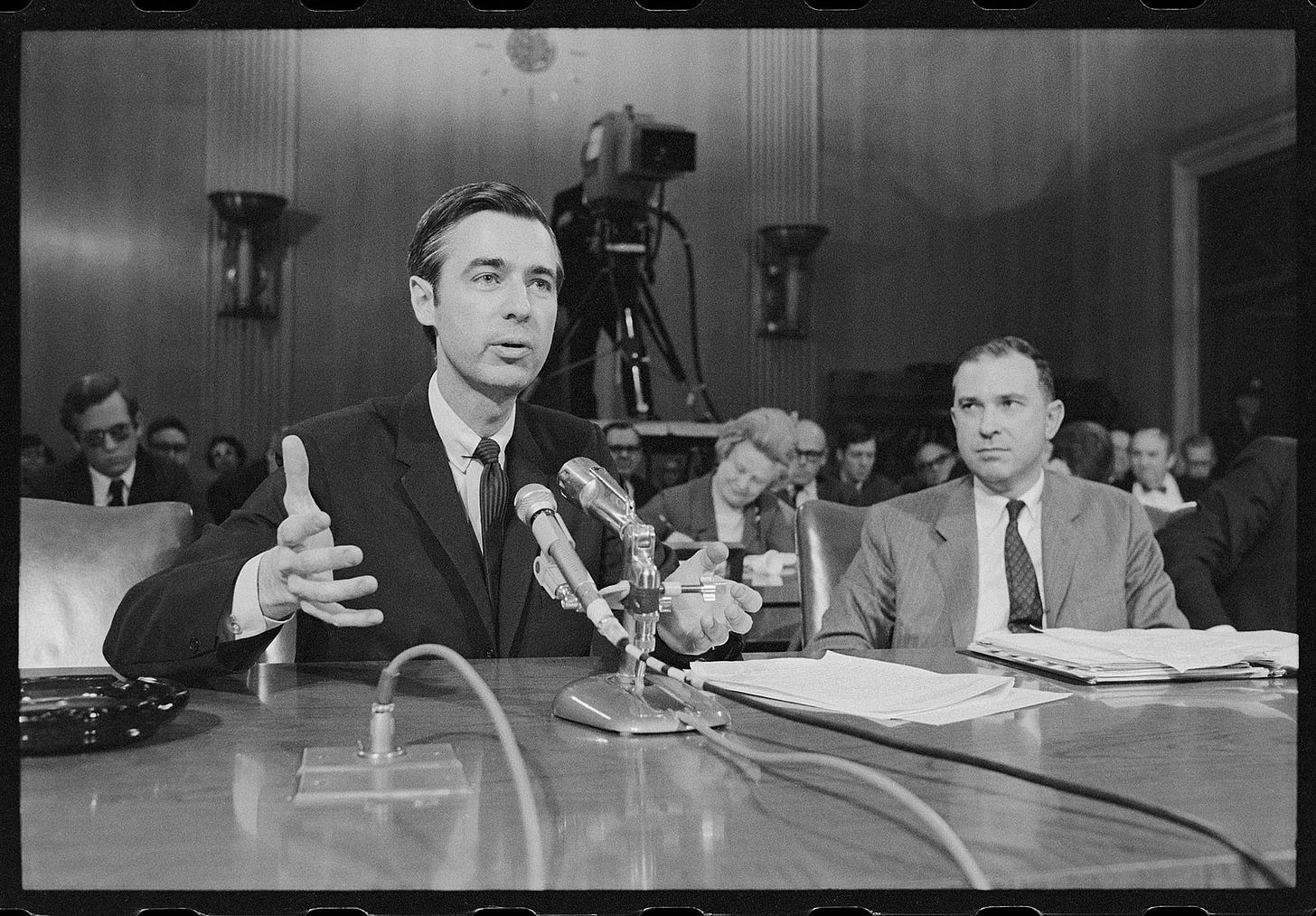

This was eloquently written and voiced. I also met LeVar! Many years ago! At the Phoenix airport! It was surreal and I had no idea what to say and was very awkward, but it was magic. I still brag about the encounter.
I had wonderful teachers and parents, as well, but was still raised by Mr. Rogers, Reading Rainbow, Sesame Street, Square One.
I have contacted my representative. Thank you for your incredible, consistent work.
Thank you for your beautiful words, Brad. I’m a PBS Kid too—one who’s been fortunate enough to produce PBS KIDS shows for the past 25 years. I got my start in the mailroom—Arthur’s mailroom, that is! (My second job out of college was answering Arthur’s fan mail—my first was working on the set of Sesame Street.)
Over the years, I’ve had the privilege of working on many beloved PBS KIDS shows, and I can personally attest to the immense love, care, dedication, rigor, and research that go into each one. And I can say from the front lines: this is not a drill. In a landscape where funding these shows is already incredibly challenging, this moment is truly perilous.
PBS has always been about meeting kids where they are—helping them feel seen, valued, and understood. I’ve heard SO many incredible stories from kids and parents over the years about the impact these shows have had on them. The loss of PBS KIDS would truly be a loss for all of America’s children. Thanks so much for shining a light.